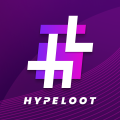Promotion
Publish ICO
Coins
Calendar
Crypto Events
News
DeFi
NFT
WEB3
Games
Trends
-
EN
English Русский Deutsch Español French Italian Portugues Indonesian Turkish Dutch العَرَبِيَّة বাংলা 中文(简体) 한국 हिन्दी 日本語
- Sign In

Last Update
Aug 23, 2018
Unification is a decoupled architectural framework that provides generalized state channels for data standardization and interoperability across enterprise tech stacks.
What this means is, we allow existing apps, websites, researchers, and users to open and close standardized data streams through state channels, efficiently and safely. Through a simple SDK and Smart Contract system, existing enterprises can become integrated into our unified ecosystem.
Unification uses blockchain-based smart contracts to give users full control of how their data is shared - and be compensated. Transparent records of data access permissions, immutably backed by the blockchain.
By bringing end users, apps, websites, and data purchasers together on the Unification protocol, user data can be managed, permissioned, bought and sold more safely, accurately, and inexpensively than ever before.
A unified data ecosystem benefits everyone:
-Businesses can efficiently open direct state channels with any actor in the network, quickly and safely sharing and cross-referencing standardized data.
-Smaller apps have access to an open marketplace to buy and sell standardized data. Currently no cross-industry standardization exists, and no transparent marketplace accessible to all.
-Businesses can add a crypto payment gateway and unified user control panel without rewriting their app or website.
- Advertisers get more accurate user preferences that were ethically obtained. Information is decoupled from a user identity,
-Researchers gain access to large amounts of cross-referenced data to make discoveries.
-Researchers can directly outsource trial patients, which currently can cost between 10-50 thousand dollars to find.
-Users have a full control of how their data is used and shared, with a full overview and user friendly controls, and can be compensated for sharing. With access permissions all backed by the blockchain.
Unification provides a software suite to improve the value and utility of data.
HAIKU
HAIKU is a deployable smart contract runtime that supports rapid off-chain state transition and data transfer protocols.
CAPSULE
Providing a client and server side packaging suite, CAPSULE enables and secures off chain storage, thus allowing a vast reduction in operating costs and increase in speed solutions.
MOTHER
A handshake verification smart contract that ensures technical compliance while providing an autonomous proof and validation for the participants in the system.
BABEL
BABEL is Unification's mobile and desktop dashboard for the end consumer. It is designed to act as a wallet, identity center, and data clearinghouse where individual users can visualize and manage the permissioned flow of their data.
Because most blockchain solutions operate in veritable “walled gardens,” where the benefits of a blockchain are only accessible by using proprietary DApps, there is currently a huge burden placed on businesses to change customer's behavior if they want to unlock the potential of this technology. Unification is different. Rather than forcing enterprises to redevelop their tech stack, our proprietary technology helps businesses adopt Distributed Ledger Technology into their existing frameworks.
The secret to offering a secure layer on top of traditional technologies lies in HAIKU, Unification’s distributed database. HAIKU seamlessly links together websites, apps, and DApps inside a singular, unified protocol, creating Unified Apps (UApps). Rather than having each technology be an island unto itself, HAIKU allows each user’s data to be stored within a CAPSULE on a UApp’s server, which the users themselves maintain and can lend a temporary key to access the data to an app, company, researcher, or any other data purchaser.
There are infinite potential use cases for the Unification protocol, including:
MEDICAL: One UApp collects a user’s GPS data. Another UApp privately stores that user’s medical records. A third UApp receives permission to access this data across millions of users and sees that all of the users whose GPS data shows them walking daily by a certain lake have a 67% higher chance of developing a particular rare disease.
This leads to notifying authorities, who test the waters in the lake to discover there was a previously unknown pollutant present in the lake.
MATCHMAKING: One UApp collects browsing and social media data. Another UApp uses intelligent matchmaking to help users find the perfect romantic partner. The matchmaking UApp, which has access to the web and social data of millions of other users, is able to make amazing and unequivocal romantic matches.
ADTECH: An AdTech UApp is installed on a user’s mobile and desktop devices. This collects their typical behaviors and browsing data and sends it back to the AdTech firm. In the old paradigm, the firm would then package and sell the data to advertisers; this whole process would be something the users were neither aware of, nor compensated for, as they had previously agreed to some vague Terms of Service when signing up for the app. In the new paradigm, users allow permission to access and sell their data through a HAIKU Smart Contract.
The AdTech firm sells dynamically-packaged and tailor-made data to advertisers and pays a remittance to the users. The HAIKU dictates that continued access to the data requires ongoing payments of UND to both the AdTech firm and user.
Verified 7%
Attention. There is a risk that unverified members are not actually members of the team
Verified 0%
Attention. There is a risk that unverified members are not actually members of the team

A hybrid blockchain environment that connects interoperating private work-chains to a public mainchain secured via delegated PoS by a rotating set of 96 validators.
Context: The low adoption of public blockchains indicates they still might be “solutions with no urgent problems to solve yet”, but private blockchains are a different matter altogether. Most enterprises looking into distributed ledgers are eyeing some flavor of private or permissioned implementation, maybe with a public chain anchor.
What it is: Trying to capitalize on this seemingly emerging trend, Unification has built a public blockchain with private work-chains that run applications and exchange data in closed environments, but in an attestable manner. They use a delegated proof of stake model where 96 nodes are selected as validators in rotating random sets of 24. The private work-chains have zero transaction fees and occasionally anchor to the public mainchain.
Funding & token action: The team sold ~$1mn worth of tokens at $0.048 - $0.05 in a private round. They mentioned not planning to do an ICO and targeting organic growth instead. They however did do two IEOs on Bitforex and Probit. They call those 'zero-sum games', as the team bought tokens from the open market and made them available to the IEO platforms with the goal of putting tokens in the hands of more people.
The project holds ~97% of the tokens, which they will gradually release in circulation as a percentage of REAL volume traded. They also listed on Binance DEX, where they have a daily volume of $50k, the minimum amount needed for Binance CEX eligibility. Their other volume is relatively small, totalling $94.6k daily at the time of writing, with a $1mn current market cap and ~$30mn fully diluted.
What I like:
- The private/public blockchain combo seems to be emerging as winning architecture
- There already is a public testnet
- Listed on several exchanges
- Claims of collaborations with notable government, medical & gaming entities (private due to NDAs)
What I dislike:
- The private & hybrid blockchain space is already packed with incumbents that are hard to compete against
- Actual product is just an Ethereum fork with some changes here and there, not all for the better (96 rotating validators in dPoS, a separate beacon component, etc)
- Team controlling 97% of tokens is similar to the Ripple model so might be subject to the same negative price action when team sells
- Confusing practices such as two 'zero-sum' IEOs
Overall, I dislike it. I honestly think a mix of public and private blockchains will be the emerging trend in enterprise adoption. The Unification team understands that and build a product to meet this trend head-on, via a self-funded project with a low circulating supply.
The team seems focused on keeping the token price as stable as possible, to reduce volatility for business customers. They view their token buyers as customers, not investors, which is great for potential customers but a caveat in their own funding model and a deterrent for prospective token buyers.
On the tech side, it’s an Ethereum fork with some features, with nowhere near the tools, documentation, experience, expertise, resources, etc etc of any of the other already incumbent private blockchain projects that can anchor to any public blockchain that is infinitely more secure than Unification is likely to become.













This offer is based solely on information provided by the offeror and other publicly available sources.
The token sale or exchange event is completely independent of ICOholder. ICOholder is not involved in any way, including technical support or promotion.
We list token sales from entities with which we have no relationship to help users track overall activity within the token sector. This information is not intended as advice, and you should seek professional or specialist guidance or conduct your own due diligence before making any decisions based on our content.
Any terms and conditions regarding token acquisition are solely between contributors and the token issuer. ICOholder is not the seller of these tokens.
ICOholder is not legally responsible for any representations made by third parties about any token sale. Any claims for breach of contract must be directed against the listed token issuing entity.
If you have concerns about the nature, legality, or propriety of a token sale or the involved individuals, please contact info@icoholder.com with detailed information.